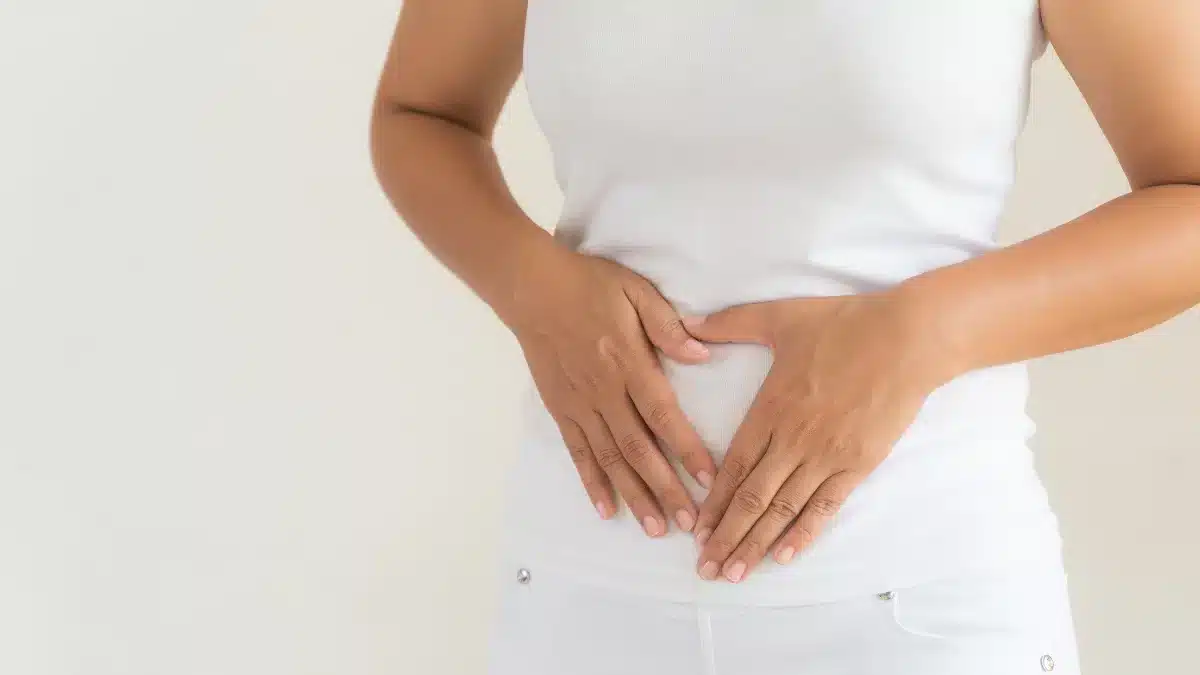Understanding UTI Bloating: Symptoms and Relief Strategies
Urinary Tract Infections (UTIs) are common, particularly among women.
A burning sensation typically recognizes these infections during urination.
However, can a UTI lead to bloating problems such as abdominal bloating or abdominal swelling?
UTI bloating is often caused due to the inflammation triggered by the infection in this region, along with sensations of bladder fullness.
This article will delve into exploring the factors behind UTI-related bloating.
Additionally, we will learn some strategies for managing and alleviating the bloating and swelling associated with UTIs.
Why does UTI cause bloating
Bloating is frequently associated with UTIs, typically in the lower urinary system.
UTIs often induce bloating due to the inflammation caused by the infection in this area and sensations of bladder fullness.
These infections in the lower urinary tract are commonly attributed to a strain of bacteria known as E. Coli.
While this bacterium typically resides in the gastrointestinal system without issue, it can lead to complications when it infiltrates the urinary system.
The resultant bacterial infection can be uncomfortable and bothersome.
UTIs bring about pressure and a feeling of fullness in the pelvic region, which can contribute to bloating.
Although UTIs are usually treatable, they can escalate to kidney infections, which pose more serious complications.
Kidney infections necessitate immediate medical attention.
If you notice bloating accompanied by back pain, fever, nausea, and vomiting, it’s crucial to consider the possibility of a kidney infection and seek immediate medical evaluation.
Can UTIs lead to swelling

Similar to bloating, UTIs can also bring about swelling.
When the body encounters foreign pathogens, its natural response may result in swelling, bloating, inflammation, and redness as it combats the invading bacteria.
This process can lead to the discomfort and swelling individuals may experience during a UTI.
It’s crucial to emphasize that not all stomach swelling or bloating instances can be attributed to a UTI.
Frequent bloating is often attributed to excess intestinal gas, which can result from eating too quickly or having a food intolerance or digestive condition.
If you lack additional symptoms, such as a burning sensation when urinating, a UTI may not be the underlying cause.
Numerous other conditions can provoke swelling in the lower abdominal area, including Irritable Bowel Syndrome (IBS), Cystitis, and gastrointestinal issues like constipation.
A burning sensation during urination is one of the most prevalent UTI symptoms.
Therefore, if your bloated stomach doesn’t coincide with this symptom, it’s advisable to consult a healthcare professional to determine alternative causes.
How to relieve bloating caused by a UTI
Experiencing UTI bloating can be uncomfortable.
While antibiotics prescribed for treating UTIs address the discomfort and swelling resulting from the infection, here are some ways you can relieve UTI bloating.
Here, we’ve outlined some effective strategies to help ease the discomfort and swelling associated with a UTI:
Stay hydrated

Consuming ample fluids is believed to assist in flushing out the infection responsible for the UTI.
Increased water intake can lead to more frequent urination, potentially helping to reduce the swelling caused by the UTI.
While adhering to your doctor’s prescribed treatment is essential, increasing your water consumption has benefited many individuals who have previously dealt with UTIs.
Cranberry juice is another fluid that some find beneficial when managing UTI symptoms.
Evidence suggests that cranberries and cranberry juice may lower the risk of UTIs and prevent recurrences.
Watch your diet
Resisting the temptation of junk food or sugary snacks when unwell can be challenging.
However, eating a nutritious diet and avoiding junk food may expedite your recovery.
Greasy junk food can slow down stomach emptying, potentially escalating discomfort and contributing to a bloated stomach, especially if you’re already experiencing swelling due to the UTI.
Increase fiber intake
A bloated stomach often accompanies digestive issues.
While it can co-occur with other UTI symptoms, you might discover that your swelling is related to digestive problems.
In such cases, boosting your fiber intake could be beneficial.
Enhancing your dietary fiber involves incorporating whole grains, fruits, and vegetables into your meals.
Additionally, consider a fiber supplement as an option.
Certain probiotic strains can also benefit UTIs, so exploring high-quality probiotics is another avenue worth considering.
Conclusion
UTIs are a common issue, particularly among women, and they can lead to uncomfortable symptoms such as bloating and swelling.
These symptoms are often caused by inflammation in the lower urinary system, where the infection resides, and the sensations of bladder fullness.
While UTIs can be treated with antibiotics, it’s important to consider additional strategies for relief.
Drinking plenty of water can help flush out the infection, as increased urination may reduce swelling.
A healthy diet and skipping junk food can expedite recovery, as greasy foods exacerbate bloating.
Increasing dietary fiber intake through whole grains and vegetables may alleviate bloating associated with digestive problems often accompanying UTIs.
If symptoms persist or differ, especially if a burning sensation during urination is absent, consulting a healthcare professional is essential.
Frequently Asked Questions
Can UTI cause abdominal bloating?
Yes, UTIs can lead to abdominal bloating due to inflammation in the lower urinary system and bladder, often accompanied by sensations of bladder fullness. It is suggested to consult a doctor if the bloating persists or causes discomfort.
Does infection cause stomach bloating?
Yes, infections, including UTIs, can cause stomach bloating. Inflammation in the affected area and the body’s immune response may lead to abdominal bloating and discomfort.
Is bloating a symptom of urinary retention?
Yes, bloating can be a symptom of urinary retention, particularly in cases of acute urinary retention. This condition is often excruciating and can lead to abdominal bloating due to the accumulation of urine in the bladder, causing pressure and discomfort.
Why am I so bloated all the time?
Frequent bloating is often attributed to excess intestinal gas, which can result from eating too quickly or having a food intolerance or digestive condition. If you experience a bloated stomach after meals, consider these factors as potential causes.
WowRx uses only high-quality sources while writing our articles. Please read our content information policy to know more about how we keep our content reliable and trustworthy.






